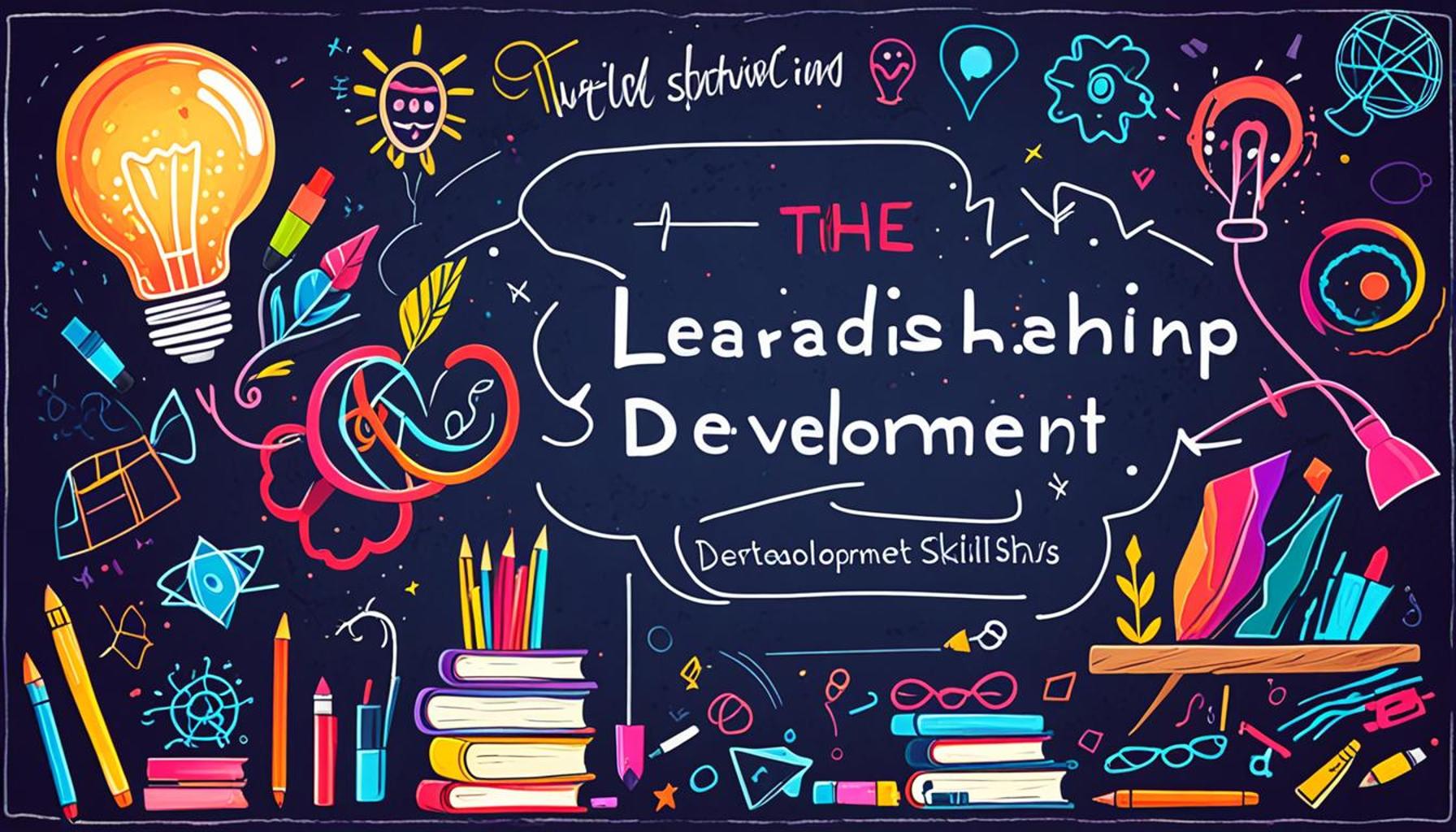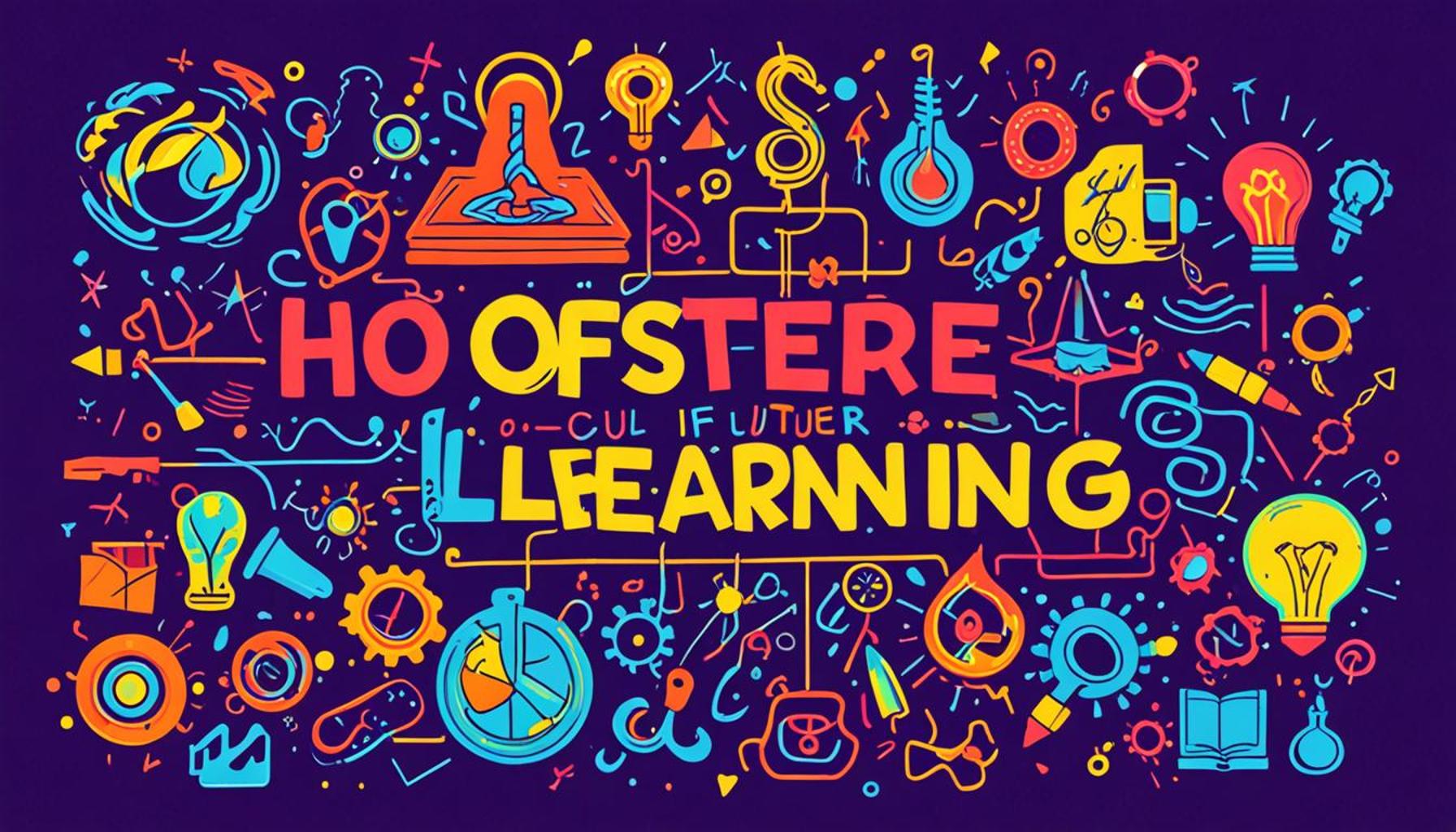Continuous Learning in Local Communities: How Knowledge Sharing Can Transform Lives

The Importance of Knowledge Sharing in Local Communities
In an age where information is undeniably powerful, local communities, especially in Nigeria, stand at a crossroad. The potential of continuous learning through knowledge sharing can pave the way for enhanced individual capabilities and substantial collective growth. The idea is simple yet profound: when people share knowledge, they not only enlighten others but also cultivate an environment ripe for innovation and progress.
Take, for example, the realm of education. In Nigeria, skills workshops targeting both students and adults can significantly uplift individuals. These workshops can range from teaching digital literacy to providing training in vocational skills such as tailoring, carpentry, or even coding. According to a report from UNESCO, communities that actively engage in educational workshops have witnessed improvements in overall literacy and employment rates. Such initiatives can be further complemented by mentorship programs, where experienced professionals can impart their knowledge to the younger generation, fostering an ongoing cycle of learning and support.
In the field of agriculture, knowledge sharing can be revolutionary. Farmers in Nigeria, for instance, can benefit immensely from collective discussions about innovative farming techniques and sustainable practices. Programs like the “Farmer-to-Farmer” initiative illustrate this, allowing farmers to exchange insights on crop rotation, pest management, and organic farming. As a result, communities can experience boosted crop yields and better food security, ultimately leading to healthier populations and stronger local economies.
Health is another pivotal area where community-led initiatives can effect change. Health education programs, particularly in rural areas, can address pressing challenges such as malaria, HIV/AIDS, and nutrition. Informal gatherings or organized health fairs can serve as platforms for sharing vital information about disease prevention and healthcare access. By employing local health ambassadors trained in public health, communities can tailor their messages to fit cultural contexts, making these experiences more relatable and impactful.
The ripple effects of fostering a culture of learning are profound. When community members unite, they create opportunities for increased collaboration. This collaboration can lead to innovative solutions to common challenges, whether it be economic downturns or climate change issues. Building a robust network where individuals share resources and ideas can also encourage improved economic growth. By embarking on shared entrepreneurial initiatives or cooperatives, community members can pool their resources, reducing individual risks and enhancing profitability.
Ultimately, embracing continuous learning allows local communities to cultivate resilience in the face of adversity. When equipped with knowledge, community members are more likely to adapt to changes and emerge stronger from challenges. The path toward fostering a knowledgeable society hinges on the collective will to share and learn from one another.
Are you prepared to delve deeper into how this transformative concept can reshape lives in your community? The journey begins with a single step—a willingness to engage, share, and learn.
LEARN MORE: This related article may interest you
Embracing Continuous Learning: Education as a Catalyst
One of the cornerstones of continuous learning in local communities is the profound impact of education. In Nigeria, the connection between knowledge sharing and improved educational outcomes cannot be overstated. Communities that prioritize educational initiatives often see a substantial increase in local literacy rates and employability. To illustrate this further, consider the following educational strategies that have shown remarkable results:
- Project-Based Learning: This hands-on approach encourages students to work on real-world problems, fostering collaboration and critical thinking. Schools implementing project-based learning often witness higher engagement from students.
- Peer Tutoring: This allows students to learn from one another. By pairing older students with younger ones, peers can explain complex concepts in relatable terms, enhancing understanding.
- Community Learning Centers: Establishing centers in rural areas to host workshops and classes can significantly increase access to education. These centers can become hubs for various skill-enhancement programs.
The success of these methods is amplified when community stakeholders actively participate. For instance, local businesses can partner with schools to provide resources, mentorship, and internships that bring theoretical knowledge into practical contexts. Such collaborations not only solidify the educational framework but also help in shaping a capable workforce, tailored to the specific needs of the local economy.
Moreover, the ripple effect of educational improvement extends beyond individual learners. As individuals acquire new skills, they improve their capacity to contribute to their families and communities. In a country where unemployment remains a pressing issue, education through knowledge sharing can lead to job creation, entrepreneurship, and ultimately, economic development.
Cultivating Agricultural Innovation through Knowledge Sharing
In addition to enhancing education, continuous learning initiatives in agriculture present another pivotal avenue for community transformation. Nigeria, with its vast agricultural potential, can harness the power of collective knowledge to elevate farming practices and ensure food security. Here, the goal is not only to increase productivity but also to encourage sustainability within farming methodologies.
Some strategies include:
- Training Workshops: By organizing workshops where experts share insights on sustainable agriculture, farmers can adopt modern techniques while respecting traditional practices.
- Farmers’ Cooperatives: These organizations allow farmers to pool their resources, share knowledge on crop management, and collectively negotiate better prices for their produce.
- Mobile Technology: Disseminating agricultural information through mobile platforms can keep farmers informed about weather forecasts and pest outbreaks, enabling timely decision-making.
The integration of technology in agriculture, alongside traditional methods, has led to significant improvements in yield and income for farmers. With these advancements, communities not only bolster their food supply but also enhance their resilience against economic fluctuations and climate challenges.
In conclusion, whether through educational initiatives or agricultural innovation, the continuous learning framework fueled by knowledge sharing possesses the potential to transform lives in local communities across Nigeria. These changes, although incremental, can lead to lasting impacts on community cohesion, shared prosperity, and overall quality of life. The foundation of transformation lies in establishing a culture that values learning and growth, ensuring every member of the community has a voice and opportunity to contribute.
| Advantage | Impact on Communities |
|---|---|
| Enhanced Skills Development | Facilitates personal and professional growth by providing access to new knowledge and training. |
| Strengthened Community Bonds | Fosters collaboration and trust through shared experiences and learning initiatives. |
| Increased Innovation | Encourages the generation of new ideas and solutions that address local challenges. |
| Access to Resources | Provides opportunities to leverage local and external resources effectively. |
The landscape of local communities can undergo a significant transformation with the adoption of continuous learning practices. Enhanced skills development is vital; it allows individuals to enrich their personal and professional capabilities. Community members taking part in workshops or mentoring sessions can acquire diverse skills that improve employability and job satisfaction.Moreover, such initiatives play a crucial role in strengthening community bonds. As residents engage in shared learning experiences, they inevitably build collaboration and trust, essential for cultivating a supportive social environment. The synergy created through knowledge sharing encourages innovation as members draw from their collective experiences, enabling creative solutions to their unique challenges. Finally, access to diverse resources becomes more attainable through community-based learning. By pooling together knowledge, skills, and local resources, communities can achieve greater effectiveness and sustainability in their initiatives. Continuous learning not only transforms individual lives but also strengthens the fabric of the community as a whole.
YOU MAY ALSO LIKE: Read read another article
Empowering Local Entrepreneurs through Collaborative Learning
In the ever-evolving landscape of Nigeria’s economy, knowledge sharing offers a fertile ground for budding entrepreneurs to thrive. The rise of small and medium-sized enterprises (SMEs) is crucial, not only for job creation but also for stimulating local economies. Creating an environment where continuous learning is prioritized can significantly enhance the capabilities of local entrepreneurs, ultimately leading to greater economic resilience.
To facilitate this empowerment, several initiatives can be implemented:
- Business Incubators: These establishments provide mentoring, resources, and support to startups. By connecting aspiring entrepreneurs with experienced mentors, incubators help nurture innovative ideas and guide them towards successful commercialization.
- Networking Events: Regular meet-ups for local entrepreneurs to share experiences, strategies, and challenges can enhance collaboration. These events foster a sense of community, enabling entrepreneurs to learn from one another and build valuable partnerships.
- Digital Learning Platforms: Utilizing technology to create online courses or webinars can provide access to business knowledge and skills for a wider audience. These platforms can offer insights on topics ranging from financial management to marketing strategies, ensuring that information reaches even the most remote areas.
The entrepreneurial landscape benefits greatly from such collaborative learning environments. For instance, in cities like Lagos, co-working spaces have sprung up, providing a platform where creative minds can come together. These spaces often host workshops, hackathons, and idea-sharing sessions that not only foster innovation but also build social capital among startups. When entrepreneurs share their successes and setbacks, they amplify collective knowledge, which helps to decrease the trial-and-error time typically associated with starting a business.
Moreover, successful case studies from local entrepreneurs who have utilized these learning opportunities can be incredibly motivating. For example, consider a local fashion designer who, through participation in a business incubator, learned effective marketing strategies and established connections with suppliers. As a result, they were able to scale their business, create jobs, and contribute to the local economy. Such narratives inspire others and underline the significance of mentorship and resource sharing in cultivating a robust entrepreneurial ecosystem.
Building Community Resilience through Health Education
Another critical area that benefits from continuous learning is community health. In Nigeria, health challenges such as malaria and maternal mortality rates require knowledgeable communities that can adopt prevention strategies effectively. Public health education becomes pivotal in equipping community members with essential knowledge that can lead to healthier lifestyles and improved health outcomes.
Strategies for enhancing health education in local communities include:
- Health Workshops: Engaging local health professionals to conduct workshops on nutrition, hygiene, and disease prevention can promote healthier behaviors. These workshops not only educate but also empower individuals to make informed health decisions.
- Peer-Led Programs: Utilizing community leaders as health ambassadors fosters trust. When peers educate peers, the message is often more resonant, leading to greater adoption of positive practices.
- School Health Programs: Integrating health education into school curriculums ensures that children grow up with a strong foundation of health knowledge, which they can pass on to their families.
Through these health education initiatives, communities can pivot toward a preventive approach rather than curative. For example, a community in Delta State implemented a peer-led health education program that significantly reduced the incidence of waterborne diseases through improved sanitation practices. By fostering continuous learning within health spheres, communities not only build resilience but also create a culture of proactive health management.
In essence, the interconnectedness of education, entrepreneurship, and health embodies the broader theme of continuous learning. By amplifying knowledge sharing across these areas, local communities in Nigeria can transform lives, build sustainable futures, and ultimately contribute to a thriving nation.
CHECK OUT: Click here to explore more
Conclusion
In a rapidly changing world, continuous learning stands as a cornerstone for transforming lives within local Nigerian communities. As evidenced by the initiatives discussed, fostering an environment of knowledge sharing helps dismantle barriers, enabling individuals to gain access to vital resources and support. The interplay between entrepreneurship and health education not only empowers community members but also contributes to the overall socio-economic growth of their environments.
The integration of practical measures, such as business incubators and peer-led health programs, showcases the potential for collective progress. When local entrepreneurs collaborate, share experiences, and strengthen their networks, they create a ripple effect that catalyzes innovation and resilience. Moreover, equipping individuals with health knowledge fosters a proactive approach to well-being, ensuring healthier communities that can tackle prevalent health challenges more effectively.
As local communities continue embracing a culture of continuous learning, it is crucial to leverage technology and inclusive practices to reach the most marginalized. By enriching these networks of knowledge sharing, not only are individual lives enriched, but entire communities are elevated. Ultimately, the path to a thriving future lies in our commitment to empowering individuals through shared experiences, insights, and education. The transformation is palpable; as communities learn and grow together, they lay the groundwork for a sustainable and prosperous nation.


